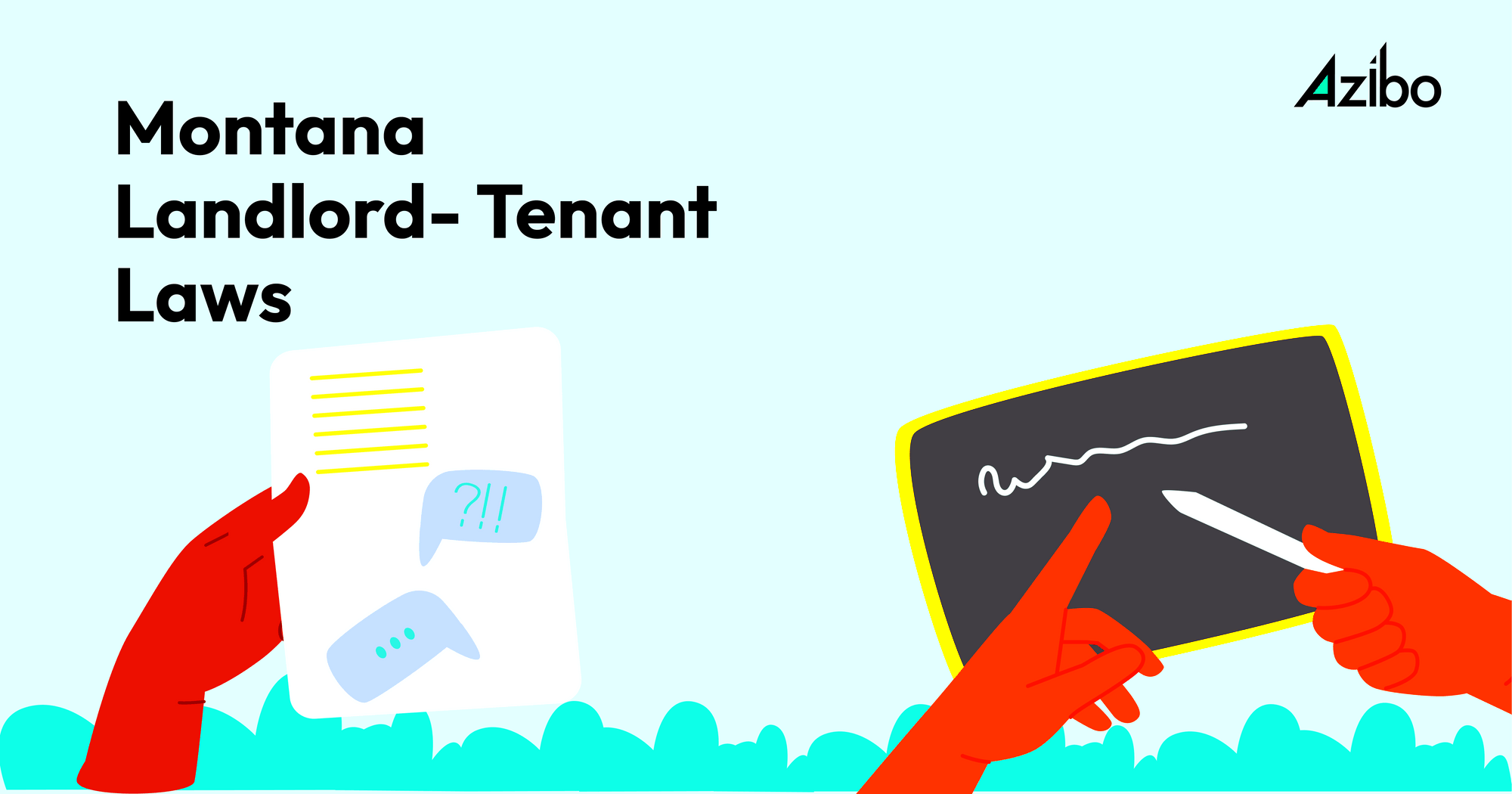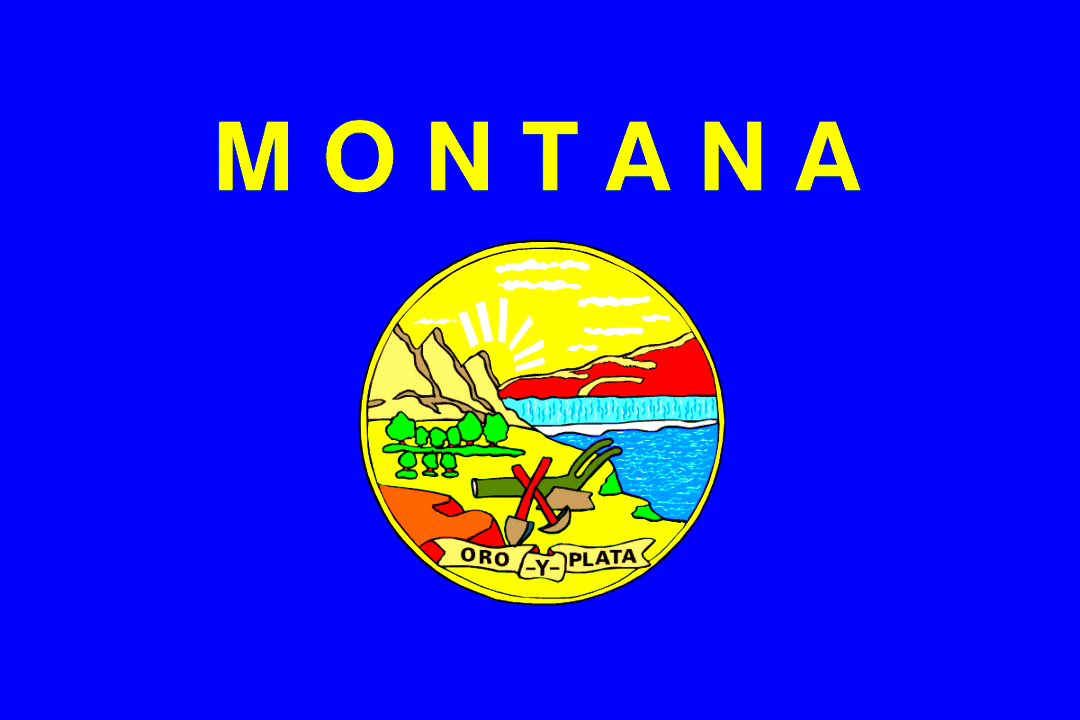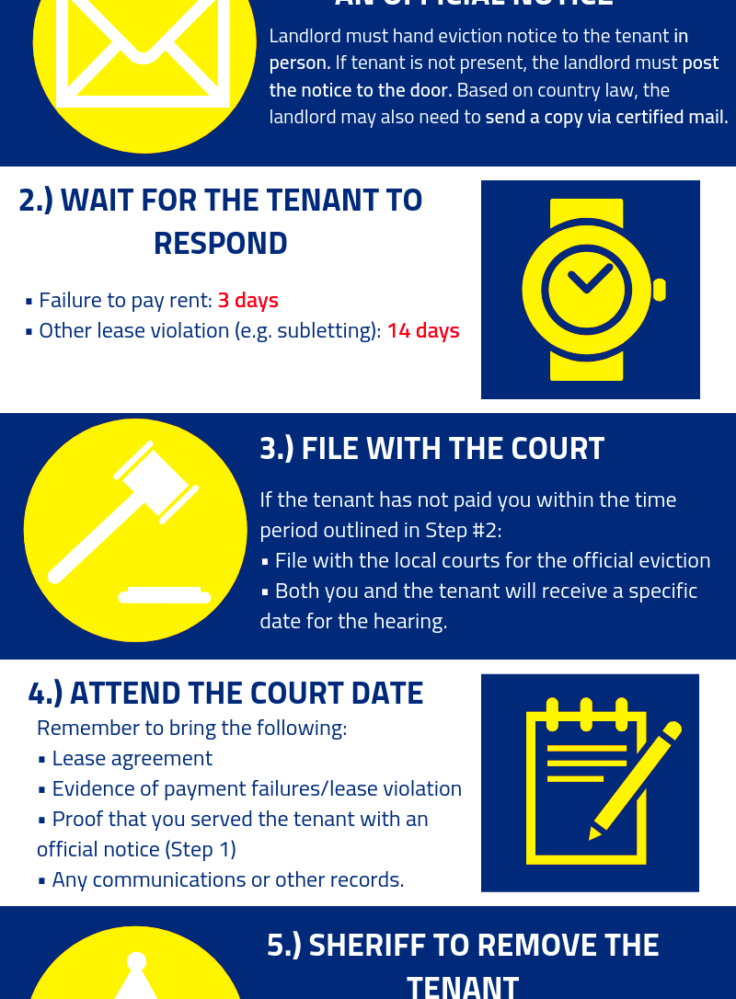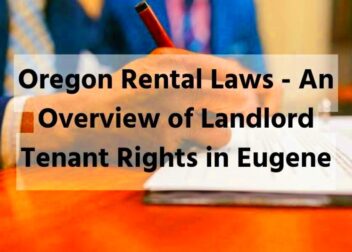What You Need to Know About Montana Landlord-Tenant Regulations
The tenant relationships in Montana’s landlord-tenant system are vital to ensuring a just and working rental market. In an environment where there are equilibria between both landlords and tenants, these laws defend the rights of each party. Understanding these regulations is crucial whether you’re a landlord looking for a new tenant or someone seeking for a home as a tenant. Here are some key features of Montana’s landlord-tenant laws that you should be aware of in this guide.
Key Responsibilities of Landlords

In Montana, landlords have a number of major obligations to make sure that their tenants have a secure and enjoyable place to live. Below are some of the most essential duties:
- Maintenance of Property: Landlords must keep the property in a habitable condition. This includes addressing issues like plumbing, heating, and electrical systems promptly.
- Compliance with Health and Safety Codes: It’s crucial for landlords to comply with local health and safety regulations. This might involve ensuring that smoke detectors are functional and the premises are free from hazards.
- Providing Written Lease Agreements: A written lease outlines the terms of the rental arrangement, including the rent amount, duration, and rules. It’s vital for both parties to understand their obligations.
- Returning Security Deposits: Montana law requires landlords to return security deposits within 30 days after the tenant moves out, minus any deductions for damages.
Key Responsibilities of Tenants

Besides landlords, tenants have certain obligations that determine pleasant rental. The following are the primary responsibilities:
- Timely Payment of Rent: Tenants must pay rent on time as outlined in the lease agreement. Late payments can lead to penalties or eviction proceedings.
- Taking Care of the Property: Tenants should keep the rental unit clean and report any maintenance issues promptly. This helps prevent bigger problems down the line.
- Respecting Neighbors: Maintaining good relations with neighbors is essential. This includes adhering to noise regulations and being considerate of others’ living space.
- Notifying Landlords of Issues: Tenants should communicate any problems with the property to the landlord as soon as possible, especially concerning safety or health hazards.
Lease Agreements and Their Importance

In Montana, lease contracts are the basis of landlord-tenant relationships. Their centrality cannot be overemphasized because they help to define the rights and obligations of both these groups. A good lease will protect each party involved from any arising misunderstandings. Knowing what goes into a lease enables you to manage your rental situation efficiently.
This is a significant mention of several elements that are mostly stated in a lease agreement:
- Parties Involved: The lease should clearly state the names of both the landlord and the tenant.
- Property Description: A detailed description of the rental property, including the address and any included amenities.
- Rent Terms: This section outlines the amount of rent, due dates, and payment methods.
- Lease Duration: Specify whether the lease is for a fixed term (e.g., one year) or month-to-month.
- Rules and Regulations: Any property-specific rules should be outlined, such as pet policies or restrictions on alterations.
In terms of misunderstanding between landlords and tenants, having a clear lease will be beneficial to them both. This document, when there is a problem, serves as a legal reference point so that all parties are aware of their rights as well as their duties.
Security Deposits and Related Laws
In rental agreements, security deposits are prevalent and landlords make use of them as a form of financial protection against any possible loss due to destroyed property or outstanding dues. The laws regarding security deposits in Montana are meant to shield both the landlords and their tenants. If you know about these rules, you can keep away from disagreements.
The following are the crucial aspects regarding security deposits in Montana:
- Maximum Amount: In Montana, landlords can charge up to one month’s rent as a security deposit.
- Written Agreement: The security deposit amount and terms should be included in the lease agreement.
- Return of Deposit: Landlords must return the security deposit within 30 days of the tenant moving out. If any deductions are made, they should provide an itemized list of the damages.
- Conditions for Deductions: Deductions can be made for unpaid rent, damages beyond normal wear and tear, or cleaning costs if the property is not left in good condition.
Tenants who are aware of these laws can manage their money better when renting and make sure that landlords obey the law regarding deposits.
Eviction Process in Montana
The landlord and the tenant may often undergo a very stressful eviction process. The eviction laws in Montana are designed to be fair while also protecting the rights of both landlords and tenants. Understanding the way in which this process works would go a long way in helping you to move through it with confidence and clarity.
Eviction process of Montana is done in the following ways:
- Grounds for Eviction: Common reasons include non-payment of rent, lease violations, or the expiration of the lease term.
- Notice to Tenant: Landlords must provide a written notice to the tenant, outlining the reason for eviction. The notice period varies based on the reason:
- For non-payment of rent, a 14-day notice is required.
- For lease violations, a 30-day notice is generally needed.
- Filing for Eviction: If the tenant does not comply, the landlord can file for eviction in court.
- Court Hearing: Both parties will have the opportunity to present their case before a judge.
- Judgment and Possession: If the court rules in favor of the landlord, they will receive a judgment allowing them to regain possession of the property.
Normally, usually, Thus, it is wise to seek resolution to issues before they escalate to eviction.
Repair and Maintenance Obligations
It would be best if you were aware of the responsibilities associated with maintaining and repairing rented homes in Montana, because they are very vital for landlords and tenants alike. These roles are important in making sure that an environment is both safe and habitable for all parties concerned. This can help bring about prompt resolution of problems by preventing any misunderstandings from occurring.
In terms of usual repair and maintenance obligations, here is a summary:
- Landlord Responsibilities:
- Habitability: Landlords are obligated to maintain the property in a habitable condition. This means ensuring basic facilities like heating, plumbing, and electricity are in good working order.
- Timely Repairs: When tenants report issues, such as leaks or broken appliances, landlords must act promptly to fix them.
- Compliance with Codes: The property must meet local health and safety codes, including working smoke detectors and safe exits.
- Tenant Responsibilities:
- General Care: Tenants should keep the property clean and avoid causing damage.
- Reporting Issues: It’s essential for tenants to notify landlords of any problems as soon as they arise, especially emergencies like water leaks.
- Minor Repairs: Some minor repairs, like changing light bulbs, might fall on tenants, depending on the lease agreement.
The knowledge of these obligations can help landlords as well as tenants cooperate in creating a conducive environment for your living.
Dispute Resolution Options
In some cases, conflicts may come up between landlords and tenants, but Montana legislation includes diverse alternatives for resolving these disagreements. Understanding these exit routes can assist the two groups in handling various problems efficiently hence fostering peace and smooth tenancy.
The most common methods of resolving disputes in Montana include the following:
- Open Communication: The first step is always to talk. Many misunderstandings can be resolved through direct conversation, where both parties can express their concerns.
- Mediation: If direct communication doesn’t work, mediation can be a great option. This involves a neutral third party who helps facilitate a discussion and find a mutually acceptable solution.
- Arbitration: If mediation fails, arbitration may be the next step. An arbitrator will review the situation and make a binding decision, which both parties must follow.
- Court Proceedings: If disputes cannot be resolved through mediation or arbitration, either party can take the matter to court. It’s often best to seek legal advice before proceeding.
By knowing these alternatives, landlords and tenants can choose the best way to solve their problems without hurting each other.
Frequently Asked Questions About Montana Landlord-Tenant Regulations
Renters and landlords alike face numerous questions when it comes to the control of the lease agreement, Montana is no exception. Here are some of the questions that landlords encounter frequently and they sometimes give answers by just saying these things are clear.
- What is a landlord’s responsibility for repairs?Landlords must keep the property habitable, which includes addressing repairs like plumbing, heating, and ensuring safety codes are met.
- How much can a landlord charge for a security deposit?In Montana, a landlord can charge up to one month’s rent as a security deposit.
- What should I do if my landlord is not making necessary repairs?Notify your landlord in writing, giving them a reasonable timeframe to address the issue. If they fail to respond, consider contacting local housing authorities or seeking legal advice.
- Can a landlord evict me without notice?No, landlords must provide proper written notice before initiating eviction proceedings, depending on the reason for eviction.
- How can I resolve a dispute with my landlord?Start with open communication, then consider mediation or arbitration if necessary. If those fail, legal action may be the last resort.
This FAQ can diminish the mysteries surrounding the landlord and tenant relationship in Montana and make both parties able to deal with their rights and duties more boldly.
Conclusion on Navigating Landlord-Tenant Regulations
It might seem difficult to navigate the landlord-tenant rules in Montana, yet understanding their primary aspects makes it simpler. Whether or not you know what each party is supposed to do or are aware of your rights concerning lease agreements and security deposits, this information can help stop disagreements and promote friendly rental relations. Communication remains key; therefore, it’s important that concerns raised are addressed immediately and resolved together with others involved otherwise it may lead to misunderstanding. One thing landlords and tenants should know is that when problems arise there are various dispute resolution approaches they could adopt such as mediation and arbitration process. This would help them come together as one towards finding a solution that satisfies both of them. If the two parties know how evictions function and repair responsibilities work then they would be able to respect their relationship by following regulations. Thus being informed and taking action can make renting successful in Montana.


